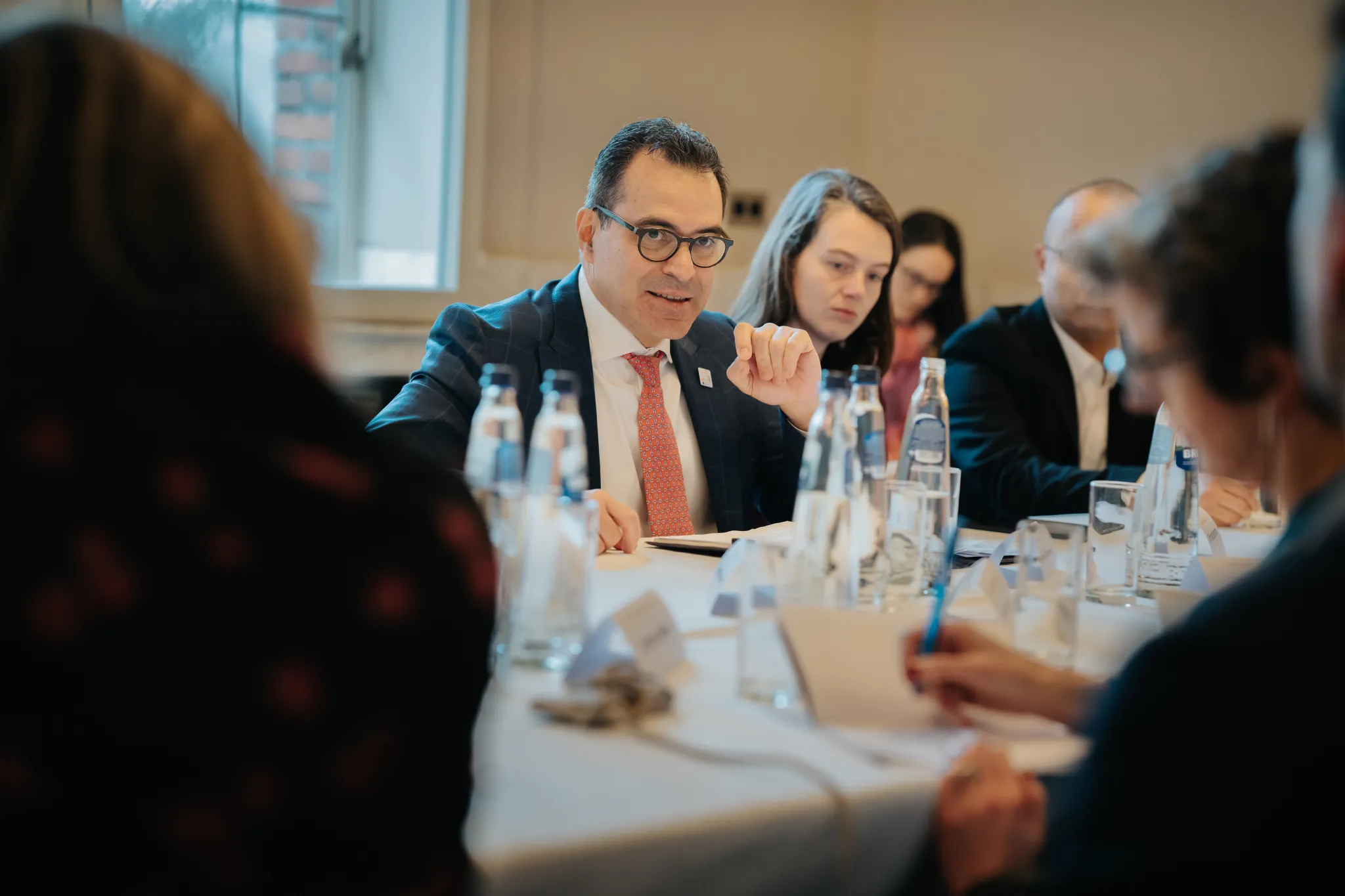Democracy, AI, and the Media: Insights from the Nobel Laureate Roundtable

International IDEA’s Secretary-General, Dr Kevin Casas-Zamora, joined 20 thought leaders from around the world in Brussels for a multi-stakeholder roundtable hosted by the Nobel Foundation on Artificial Intelligence (AI), the Media and Democracy, earlier this March. Among the distinguished participants were three Nobel Laureates, Oleksandra Matviichuk (from the Center for Civil Liberties, Peace Nobel Prize 2022), Ben Faringa (Nobel Prize in Chemistry 2016), and Sir Paul Nurse (Nobel Prize in Medicine 2001), as well various other leading experts from a range of fields.
Dr Casas-Zamora kickstarted the discussion with reflections on how AI will change the nature of elections and democracy, highlighting key risks in the context of the super election year of 2024. Generative AI is increasing the sophistication and spread of disinformation, lowering the entry-barrier for producing high quality deceptive political content. In this new information environment, AI bots are simulating human behavior, personalizing and targeting political messaging to each recipient. Since a reliable information environment is key to a functioning democracy, the increased uncertainty over facts threatens the integrity of democracy and its capacity for self-correction. Nowhere is this more clear than in the case of elections, where misinformation and disinformation threaten people’s ability to make informed and autonomous decisions.
The Secretary-General mentioned that multistakeholder governance is essential in tackling these issues of information integrity. Protecting democratic principles in the age of AI requires not only the oversight and regulations of states, but also the engagement of civil society and other non-governmental institutions. Existing regulations, such as Europe’s GDPR and AI Act, should be promoted and widened as collective initiatives for comprehending the implications of AI in both private and public domains. To do this, common rules and guidelines should be established at the international level and implemented and enforced at the national level. Furthermore, in the context of elections, the use of AI-generated content by political actors should be transparent and clearly labelled, to ensure the public is aware of its source and to mitigate potential mis- and disinformation threats.
The themes of the roundtable discussion were reinforced in the subsequent public Nobel Prize Dialogue, “Fact & Fiction: The Future of Democracy”, held in conjunction with the European Research Council. Panelists discussed the importance of protecting science and facts in the digital sphere, given that credible information is essential in protecting the autonomy and agency of those participating in politics – from elected officials and candidates to voters and civil society groups. As the 2021 Nobel Peace Laureate and panelist Maria Ressa puts it, we cannot tackle the challenges of emerging technologies like AI unless we “have a shared reality, (one that is) built on truth.”



